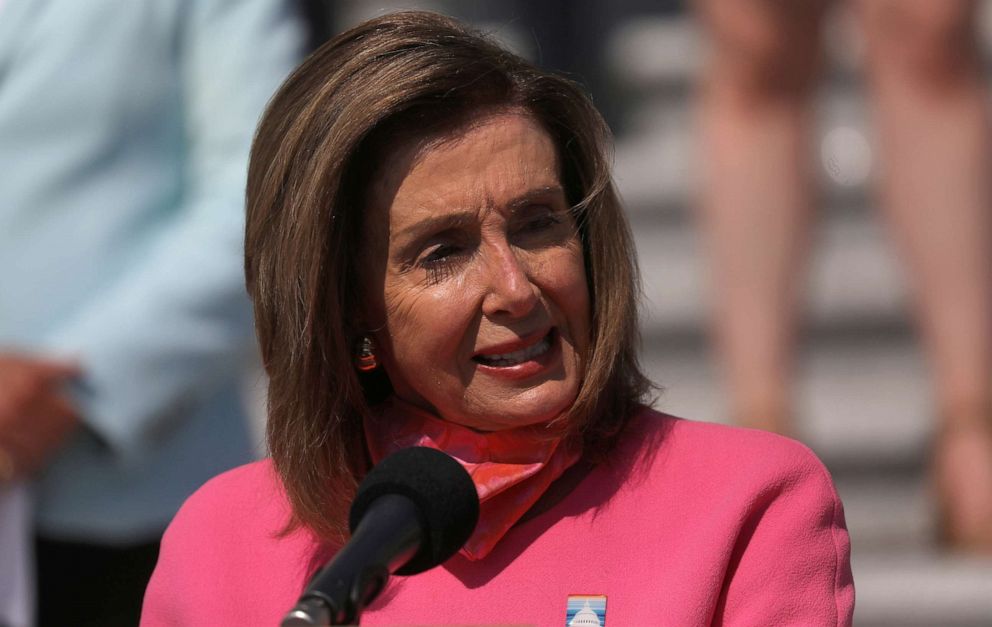Study should proceed on renaming military bases regardless of Trump’s veto threat: Sen. Tim Scott
"We should have a study of those bases and why they were named," Scott said.
Sen. Tim Scott, R-S.C., said that Congress should proceed with legislation that calls for a study into military bases named after figures of the Confederacy, despite the fact that President Donald Trump threatened to veto the bill if such language was present.
On ABC News’ 'Powerhouse Politics' podcast, Scott told ABC News Chief White House Correspondent Jonathan Karl and Political Director Rick Klein that renaming bases or monuments should come after a study into their names.
"The willingness for the DOD to study the names of the bases, I think, makes sense to me. How we come to the conclusion on the bases that should be renamed, if at all, is a part of that process that we should study," Scott said.
"I think that we should move forward with the language basically as it is, from my understanding, which is that we should have a study of those bases and why they were named, and then come to a decision on what we should do about that. I think it's premature to make a decision before you see the results of that study, something that I'm interested in seeing."
An amendment to the Department of Defense's annual spending bill was introduced by Sen. Elizabeth Warren, D-Mass., and passed by the Republican-led Senate Arms Services Committee, which would remove names, symbols and displays that commemorate the Confederacy within three years.

Scott is at the helm of police reform bills in the Senate Republican caucus, after speaking openly about his experience as a Black man being stopped by law enforcement. The Senate and House are currently at a standstill on reform legislation negotiations, with no clear path forward on how the they will proceed.
"I think you told me on ‘This Week’ that there is basically 70% of agreement between your bill and the Democratic bill in the House," Karl said. "What next? Is there anything more you can do? Are there bits and pieces that can be taken out of your bill, that you can reach out to, to your Democratic colleagues and get passed or are we just gonna have to wait till after the election on this?"
Scott said the worst outcome for his legislation is to wait until after the November general election to pick it back up.

"I think the worst outcome is to wait till after the election on the legislation that I sponsored," he said. "There are working groups on both sides of the aisle. So there is a reason for us to keep our shoulder to the grindstone for the next few weeks and see if we can emerge from this time back in our states with a compromised bill that leads to the President's signature."
"If we miss this opportunity, it won't be for the lack of effort on my part, and it won't be because every member of the United States Senate Republicans are willing to move forward and give democrats enough amendments to vote on every single difference they saw in the bill," he added.
Klein asked Scott about the recent slogan campaigns, such as Black Lives Matter, and if he agreed with the president that those are hateful slogans.
Scott said he doesn’t find the words ‘black lives matter’ hateful themselves, but calls to defund the police, he said, do contribute to stereotyping -- something which he has experienced as a Black man.
"I'm not here to defend and or comment on what he does or doesn't say. I think that's a path forward that is fraught with problems because I don't work for the president, I work for the American people," Scott said.
"I do not find black lives matter, the words themselves as a problem or hateful themselves. I think the concept of defunding the police is a position of stereotyping all law enforcement officers in the same way that I as an African American would hate to be stereotyped because I have been stereotyped," he added.
Scott’s newly-minted role as the leader of major bipartisan legislation has thrust him into the limelight -- and stirred conversation about the possibility of a presidential bid come 2024.
"So, I can't predict the future. What I can tell you is I think that it's easier to have a healthy reputation and a higher approval rating as a member of the clergy, then it is as a member of politics so my future is unknown to me, but I don't have any designs today on running for president of the United States," he said.
"And frankly, hate that I have received and the death threats and all of the things that have come up -- because I've worked on a bipartisan piece of legislation to make it safer in neighborhoods -- doesn't make me want to roll back my commitment on term limits in public office and especially in the United States Senate. So, I am thankful to be where I am," he added.
Also on the podcast, veteran pollster and political consultant Frank Luntz warned that the language Trump is using -- referencing "law and order," and calling himself a "warrior" -- is "over-caffeinated" and "not helping him."
"It’s not that they’re turning against him for what he’s doing. They’re turning against him because of what he’s saying," Luntz told Karl and Klein.




